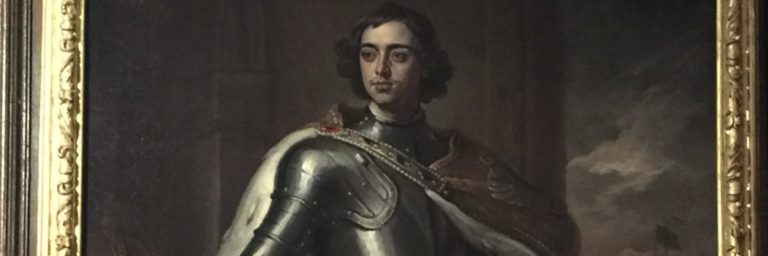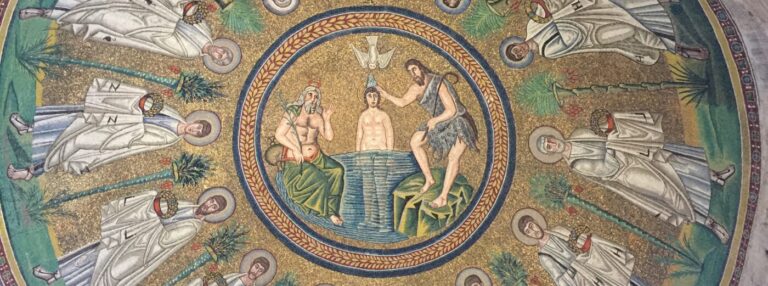The 19th Century in St. Petersburg was a time when Russian literary and musical expression matched or exceeded the best that Europe and America had to offer. (St Petersburg: A Cultural History, and Natasha’s Dance: A Cultural History of Russia
) The novels written then give you enormous insight into the actual life and times of Russians at all levels of the social spectrum. Some of these works are very widely known, while others are familiar only to those with some background in Russian studies. We’ll give you a “greatest hits” approach to writers and composers and their most renown works.
The Soviet period is more difficult. Stalin fostered a literary community focused on “Socialist Realism” which was intended to support the image of worker as hero. Much of it was heavily censored or directed. The most famous works by Russian writers and composers during this period were from “emigres” who had left Russia for life in Europe or America. As some were seriously critical of the Soviet system, they were controversial and fostered some backlash from the Soviet literary press. Again, some of these titles are well known. Others are more obscure. However, the books listed here are the cream of the crop.
Russian Literature:
- Boris Godunov: A Drama in Verse (Dodo Press)
, 1825, the novel inspired Mussorgsky’s opera
- “Mozart and Salieri”, Pushkin: Little Tragedies: The Covetous Knight”, “Mozart and Salieri”, “The Stone Guest”, “The Feast During the Plague (Russian Texts)
, 1830, the story in verse inspired the movie, “Amadeus”
- Eugene Onegin (Penguin Classics)
, 1837, the novel inspired the opera by Tchaikovsky
Nikolai Gogol: Storyteller and satirist. He loved to poke fun at the upper crust.
- The Collected Tales (Everyman’s Library)
, including his most famous short stories, “The Overcoat”, “The Nose”, and “Diary of a Madman”.
- Taras Bulba And Other Tales
, 1842, a characterization of the Ukrainian Cossack culture, inspired the movie
- Dead Souls (Everyman’s Library)
, 1842, a very famous satire about the government policies for serfdom
Ivan Turgenev:
- Fathers and Sons (Oxford World’s Classics)
, 1862, a controversial commentary on generational differences
Leo Tolstoy: Possibly one of the greatest novelists anytime, anywhere.
![443px-Ge_Tolstoy[1] Leo Tolstoy](https://cruisereader.com/wp-content/uploads/2012/09/443px-Ge_Tolstoy1-221x300.jpg)
- War and Peace (Vintage Classics)
, 1869, renown novel about Russia’s nobility and its foibles, versus Napoleon
- Anna Karenina
, 1877, powerful, controversial love story, inspired the famous movie
- The Death of Ivan Ilyich
, 1886, famous social commentary about the meaning of life
Fyodor Dostoyevsky: Another titan of Russian literature and the universal human condition
- Notes from Underground, The Grand Inquisitor
, 1864, a short but very challenging philosophical workout
- Crime and Punishment (Everyman’s Library)
, 1866, an examination of the limits of moral values
- The Idiot (Vintage Classics)
, 1869, It may be a little uncomfortable to realize that you identify with the idiot
- The Devils: The Possessed (Penguin Classics)
, 1872, This one will have you questioning your concept of God
- The Brothers Karamazov
, 1880, a wide-ranging critique of Russian society told through colorful characters
Anton Chekhov: Master playwright whose works are still performed internationally
Maxim Gorky: One of the first writers to support the revolutionary cause
My Childhood (Classic, 20th-Century, Penguin)
Boris Pasternak, émigré author
-
-
- Doctor Zhivago (Vintage International)
, 1957, Life and love through the Russian revolutions and WWII, inspired the movie
- Doctor Zhivago (Vintage International)
-
Mikhail Bulgakov, Soviet satirist
-
-
- The Master and Margarita
, originally written in 1940, though not published until 1967, The Devil visits atheistic Russia and a fantastical journey ensues
- The Master and Margarita
-
Vladimir Nabokov, superb émigré writer and literary professor
-
-
- The Annotated Lolita (Penguin Modern Classics)
, 1955, the controversial novel about the abduction of a 12 year old girl
- Invitation to a Beheading
, 1959, a short though entertaining mental workout
- Pale Fire (Everyman’s Library Classics & Contemporary Classics)
, 1962, a poem within a novel that still defies interpretation
- Ada, or Ardor: A Family Chronicle
, 1969, another controversial novel about forbidden sibling love
- Speak, Memory
, 1951, an autobiography of Nabokov’s early life
- Look at the Harlequins!
, 1974, a spoof on his unauthorized biography
- The Annotated Lolita (Penguin Modern Classics)
-
In addition to Nabokov’s novels, his collections of literary lectures are a literature of their own:
-
-
- Lectures on Literature
, 1980, on well-known European titles
- Lectures on Russian Literature
, 1981, the most famous Russian works
- Lectures on Don Quixote
, 1983, fascinating analysis of Cervantes’ classic
- Lectures on Literature
-
Aleksandr Solzhenitsyn, the essential critic of Stalinist Russia
-
-
- One Day in the Life of Ivan Denisovich
, 1962, a day in a Siberian prison camp, about the resiliency of life
- THE GULAG ARCHIPELAGO
, 1967, the abridged version of the author’s experience in the prison camp system
- The First Circle: A Novel (The Restored Text: The First Uncensored Edition)
, 1968, the moral dilemmas of working for a tyrant
- One Day in the Life of Ivan Denisovich
-
Russian Music: You have all heard of Tchaikovsky. He is the 800-pound gorilla of Russian musical composition. You could spend a very pleasant afternoon listening to his best works. The fourth movement of the Fifth Symphony is some of the most regal music ever written. He has excellent company with many other Russian composers from Tsarist and Soviet periods. Many of these works have numerous versions. Pick one with a great orchestra and enjoy!
Tchaikovsky:

-
-
- Tchaikovsky: Ballet Suites – Swan Lake / Sleeping Beauty,Op.66a / Nutcracker
- Tchaikovsky: Symphonies no 4, 5, & 6 / Karajan, Berlin PO
: Numbers 4, 5, and 6
- Tchaikovsky: 1812 Overture; Capriccio Italien; Romeo & Juliet; Francesca da Rimini
- Tchaikovsky: Concerto No. 1/Rachmaninoff: Concerto No. 2
- Tchaikovsky: Concerto For Violin And Orchestra In D
- Tchaikovsky: Ballet Suites – Swan Lake / Sleeping Beauty,Op.66a / Nutcracker
-
Rachmaninoff:
Rimsky-Korsakov:
Mussorgsky:
Igor Stravinsky:
Sergei Prokofiev:
Dmitri Shostakovich:
Russian Ballet: We cannot leave the topic of Russian Artistry without some mention of the spectacular Ballet personalities that have come from St. Petersburg and Moscow. If you can find examples of their performances, they would be worth watching. The Ballet companies are also legends. The St. Petersburg troupe was founded by Sergei Diaghilev as the Ballet Russe. Founded in 1909, it has morphed over the years into the Kirov Ballet, and, now, the Mariinsky Ballet. In Moscow, the Bolshoi Company has become the most famous name in Dance.
Impresario: Sergei Diaghilev, Diaghilev: A Life, Diaghilev and the Golden Age of the Ballets Russes 1909-1929
The Men: Vaslav Nijinsky, George Balanchine, Rudolph Nureyev, Mikhail Baryshnikov
The Women: Tamara Karsavina, Anna Pavlova, Natalia Makarova








